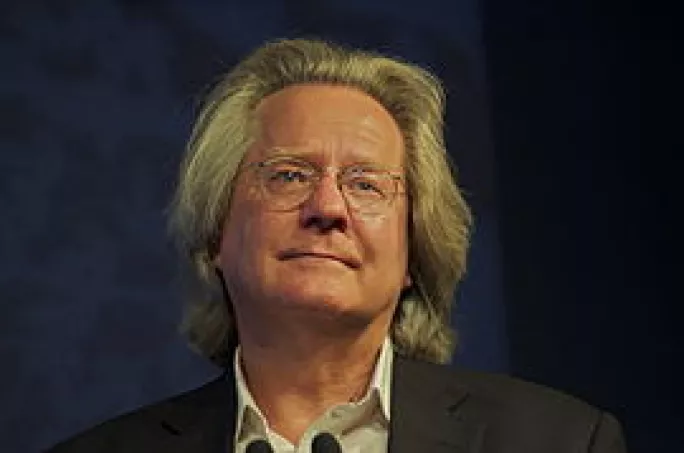AC Grayling bites back: ‘If we teach religious studies, we may as well teach astrological studies too’
AC Grayling, philosopher, author and master of the New College of the Humanities, writes:
Like a number of those who have commented on the RS-in-schools debate in defence of RS, the pseudonymous David Ashton comprehensively misses the point. Let us examine that point by analogy.
I liken religion to astrology, as involving beliefs about the world and humankind that were early humanity’s efforts to make sense of things, and which are now superseded by far more informed, rational and productive ways of thinking. I do not use the example of astrology lightly. Our ancestors sincerely believed that the alignments of such heavenly bodies as were then visible from earth influenced the character and destiny of human beings. They were comprehensively wrong about that, and about the nature of the heavenly bodies themselves, yet in our own day some dozen or so schools of astrology persist, and millions of people believe in their deliverances, and read horoscopes in a quest for self-understanding and guidance.
Now let us suppose that that in our schools there is a legal obligation on us to teach AS - astrological studies - in which horary astrology, genethliacal astrology, the Hamburg School of astrology, the controversy between sidereal and tropical Astrology - and much besides of a highly picturesque and elaborate kind - is offered as giving perspectives on human nature and the meaning of life. Claims about how illuminating it is, how deeply rooted in our traditions, how it connects with everything in our experience, would be made by those who studied AS and astrology at university and in their PGCE courses - by the vested investors, in other words - who therefore resist any suggestion that astronomy, astrophysics and cosmology have demolished the pretensions of astrology to anything but a claim on its place in history, and on present-day sociological and psychological study of why anyone continues to give it credence.
To suggest that astrological studies should be supplanted in schools by the history of ideas and by a subject - philosophy - that is focused on all thought in the range of our intellectual endeavours rather than just one kind of thought (in this example, astrological thought), is to suggest that school children should be liberated from the distorting effect of thinking that one antique subject is the appropriate one for thinking about life - and should instead be offered a far wider perspective.
Let us leave the realms of fancy - astrology and religion, near neighbours in the infancy of human intelligence - and consider two criticisms attempted by the pseudonymous David.
He asperses my “narrative of the grand march of humanity towards rational naturalism”. This betrays the postmodernist roots of his view - the desired view of the Davids of this world - which is that there is no such narrative: all perspectives, all subjects, are equally valid. He forgets central heating, computers and modern dentistry in wishing to deny that there has been any kind of grand march of enquiry of the kind that would leave - say - astrology behind. Uncomfortably for David, this is a belief he is obliged to suspend when he gets into an airplane.
He is offended by my stating as a simple fact that religion is false. Let us count the falsehoods: that the universe was created in six days, that Methuselah lived 969 years (and perhaps drowned in the Flood), that the sun stood still, that virgins can give birth, that the dead can return to life without the help of defibrillators, that there are gods and goddesses (or a smaller number, perhaps only one - or one in three versions) - obviously this could take forever, so we can try a simpler tack: try heating and lighting your house by prayer, or by attaching it to the electricity grid. One can anticipate the result.
David says that good RS teachers already teach the history of ideas - putting religion in context - and raise the critical and assumption-examining philosophical questions that we need to debate. He is right; good RS teachers do this; most of them (I meet many) would love to be doing this without the drag-anchor of having to configure it as RS. That is exactly and precisely why I suggest that history of ideas and philosophy should replace RS. To think in particular about ethical questions by drawing on the debates about them in philosophy - richer and deeper by far than anything religion offers - would be a great plus.
For those before whom the red mist rises to obscure my point: this is not to say that there should be no mention of religion and religious traditions; on the contrary, religion has formed much of the primordial bog out of which the life of thought has managed to rise, and therefore it has to be part of the history of ideas. But that history - simple statement of fact again, when it comes to improvement in dentistry and the rest - is a history of how human understanding of the world has progressed from illiteracy to literacy, from mumbo-jumbo to medicine, from climbing trees to flying to the moon, from superstition to science.
Does David forget that some of the major religions tried their damnedest to halt that progress? Good RS teachers mention Galileo when they get the chance.
Keep reading for just £1 per month
You've reached your limit of free articles this month. Subscribe for £1 per month for three months and get:
- Unlimited access to all Tes magazine content
- Exclusive subscriber-only stories
- Award-winning email newsletters




